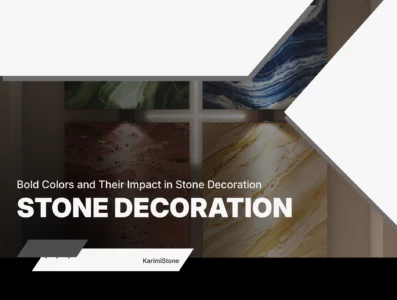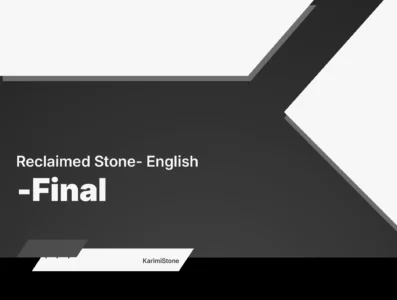
Post Page
Natural Stone Pavers : Durable, Elegant & Perfectly Sized

When designing outdoor areas, the first question that comes to mind is: how do you make sure your outdoor flooring is both beautiful and long-lasting? The answer lies in natural stone pavers. These stones are not only visually elegant but also provide the durability that modern projects demand. Unlike artificial alternatives, stone pavers have been trusted for centuries in both residential and commercial construction.
Choosing the right type of natural stone pavers for each purpose is the key. A patio might look stunning with a certain material, but the same stone could fail under heavy vehicle traffic in a driveway. Around pools, the flooring must resist both water and heat while remaining safe to walk on. That’s why correct selection and installation of durable stone tiles is essential for lasting performance.
Durability Factors in Natural Stone Pavers
The life span of any outdoor flooring depends on several important factors. For natural stone pavers, durability is defined by the following:
- Density and Porosity: Stones with higher density and low porosity resist water absorption. They stay stronger over time, unlike porous stones with calcite veins that weaken in wet conditions.
- Thickness: For heavy-use areas like driveways, thickness should exceed 2.5 cm. Even the strongest stone pavers will break if laid on a weak base.
- Foundation and Compaction: The base must be properly compacted. A stable subgrade with macadam, cement, or pebbles ensures that outdoor stone flooring remains even and secure.
- Load Bearing: With a strong foundation, even thinner stones can support heavy vehicles without cracking.
Sizes and Strength of Stone Pavers
The performance of natural stone pavers is directly connected to size. Smaller stones distribute pressure more effectively and reduce the risk of cracks.
- Driveways perform best with 20×20 cm to 30×30 cm sizes.
- 20×20 cm stones with 2.2 cm thickness are highly reliable.
- Even 10×10 cm stone pavers with 2 cm thickness deliver excellent durability.
- Larger sizes need more thickness to remain stable:
- 40×40 cm → 3 cm
- 60×60 cm → 5 cm
The smaller the paver, the stronger it acts under load. This balance between size and thickness ensures that your durable stone tiles last for decades.
Outdoor Applications of Natural Stone Pavers
The beauty of natural stone pavers lies in their versatility. They can transform a wide range of outdoor spaces, including:
- Driveways: Require dense stones with proper thickness and a strong base.
- Walkways and Garden Paths: Travertine and limestone create non-slip, elegant paths.
- Pools: White limestone and silver travertine are perfect, as they resist water and heat while staying cool underfoot.
- Patios: Granite and limestone give outdoor living areas both durability and timeless appeal.
No matter the setting, the correct choice of outdoor stone flooring ensures beauty and functionality.
Advantages of Natural Stone Pavers
Homeowners and architects prefer natural stone pavers for many reasons:
- A timeless natural look that blends with any design.
- Durability against extreme heat, cold, and heavy loads.
- Available in polished, tumbled, sandblasted, and bush-hammered finishes.
- Easy to maintain, with the option to replace individual stones if needed.
- Eco-friendly choice compared to synthetic flooring.
These benefits explain why durable stone tiles remain the number one choice for high-quality outdoor projects.
Frequently Asked Questions
- What thickness is best for driveways?
At least 2.5 cm, though larger formats (40×40 cm or 60×60 cm) should be 3–5 cm thick. - Do larger pavers break more easily?
Yes. Larger stones have higher risk of breakage. Smaller stone pavers like 20×20 cm or 30×30 cm are more reliable. - How do I prevent settlement of my outdoor stone flooring?
Prepare the base carefully and ensure strong compaction with macadam, cement, or pebbles. - Which stones are best for pool areas?
Travertine and white limestone are highly recommended because they stay cool and resist water. - Why are dense stones better?
Dense natural stone pavers absorb less water, which makes them more durable in freeze–thaw cycles.
Karimi Stone – Your Trusted Partner
With over 40 years of expertise, Karimi Stone is one of the most reliable producers and exporters of natural stone pavers. We offer limestone, travertine, granite, and marble in slabs, tiles, and custom sizes.
Our Dubai office makes financial and logistics processes easier for international buyers. We ensure every shipment is carefully packed and delivered securely by truck, rail, or sea.
Thanks to modern Italian machinery and skilled craftsmanship, we provide precision, strength, and quality in every order. Whether your project is a luxury villa, a commercial building, or a public space, Karimi Stone guarantees durable stone tiles that combine elegance with performance.









 Online Catalogue
Online Catalogue
